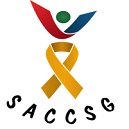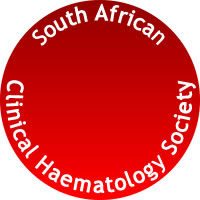Original Research
Advancing cancer control in the future through developing leaders
South African Journal of Oncology | Vol 1 | a15 |
DOI: https://doi.org/10.4102/sajo.v1i0.15
| © 2017 Peter S. Craighead
| This work is licensed under CC Attribution 4.0
Submitted: 24 February 2017 | Published: 26 May 2017
Submitted: 24 February 2017 | Published: 26 May 2017
About the author(s)
Peter S. Craighead, Department of Oncology, Tom Baker Cancer Centre, University of Calgary; Alberta Radiosurgery Centre, CanadaAbstract
Background: Developing leaders is a critically important activity, especially in cancer services that depend on strong advocates for funding or sustained leadership of organisations. Many global think tanks have warned us about a crisis occurring in leadership. This crisis is not related simply to a lack of leaders, but probably secondary to a lack of competencies in leaders. This distinction allows us to ask whether it would be important to develop skills that will improve the quality of leadership in the future. The author postulates that competencies that will change this perception can be taught.
Aim: To show the distinction between leadership competencies considered important, and a potential mechanism for how organisations can drive succession planning.
Setting: Every cancer organisation needs leaders.
Methods: This article argues that the most important ingredient to impact the pace of change will be the ability to develop and sustain strong leadership. By reviewing current literature it describes what leadership is, and the competencies required to succeed at this. The experience gained by implementing a development unit in Calgary is used to suggest strategies needed by other cancer organisations.
Results: Leadership competencies can be taught. The local development unit has demonstrated that a formative approach can be implemented to engage emerging, mid-career and senior leaders. The article suggests practical strategies that will facilitate development of strong academic leaders.
Conclusion: Unless leaders are developed, it is quite possible that the momentum for healthy growth of cancer services will be stalled.
Aim: To show the distinction between leadership competencies considered important, and a potential mechanism for how organisations can drive succession planning.
Setting: Every cancer organisation needs leaders.
Methods: This article argues that the most important ingredient to impact the pace of change will be the ability to develop and sustain strong leadership. By reviewing current literature it describes what leadership is, and the competencies required to succeed at this. The experience gained by implementing a development unit in Calgary is used to suggest strategies needed by other cancer organisations.
Results: Leadership competencies can be taught. The local development unit has demonstrated that a formative approach can be implemented to engage emerging, mid-career and senior leaders. The article suggests practical strategies that will facilitate development of strong academic leaders.
Conclusion: Unless leaders are developed, it is quite possible that the momentum for healthy growth of cancer services will be stalled.
Keywords
leadership; competency development
Metrics
Total abstract views: 3034Total article views: 3937
Crossref Citations
1. An Exploration of the Pillars of Leadership in Cancer Education
Thenugaa Rajeswaran, Krista Dawdy, Maria Bishop, Gilad Amiel, Kathleen Heneghan, Jamal Khader, Jakob de Vries, Filipe Santos Silva, David Wiljer, Ewa Szumacher
Journal of Cancer Education vol: 39 issue: 3 first page: 288 year: 2024
doi: 10.1007/s13187-024-02409-w



